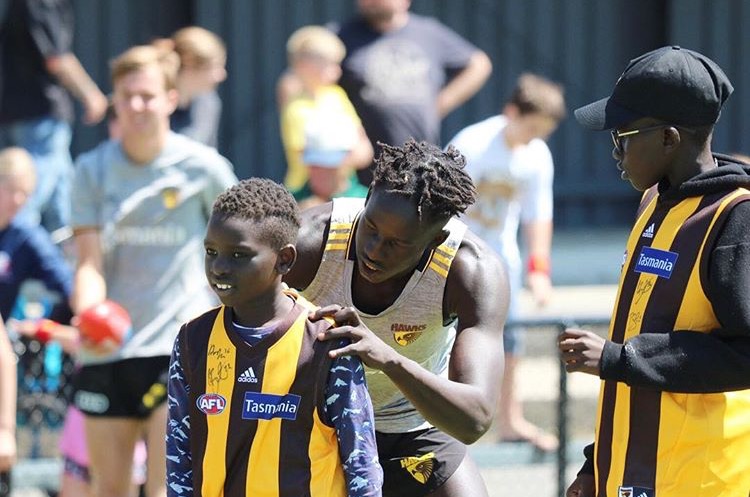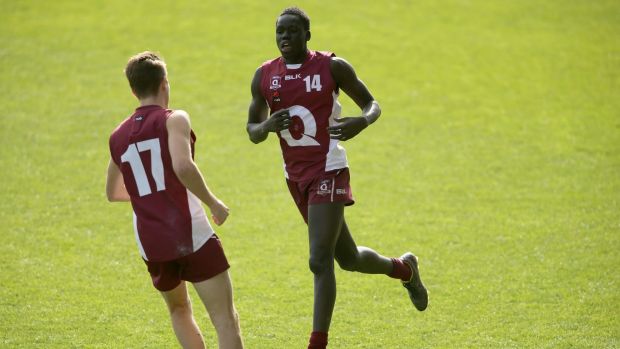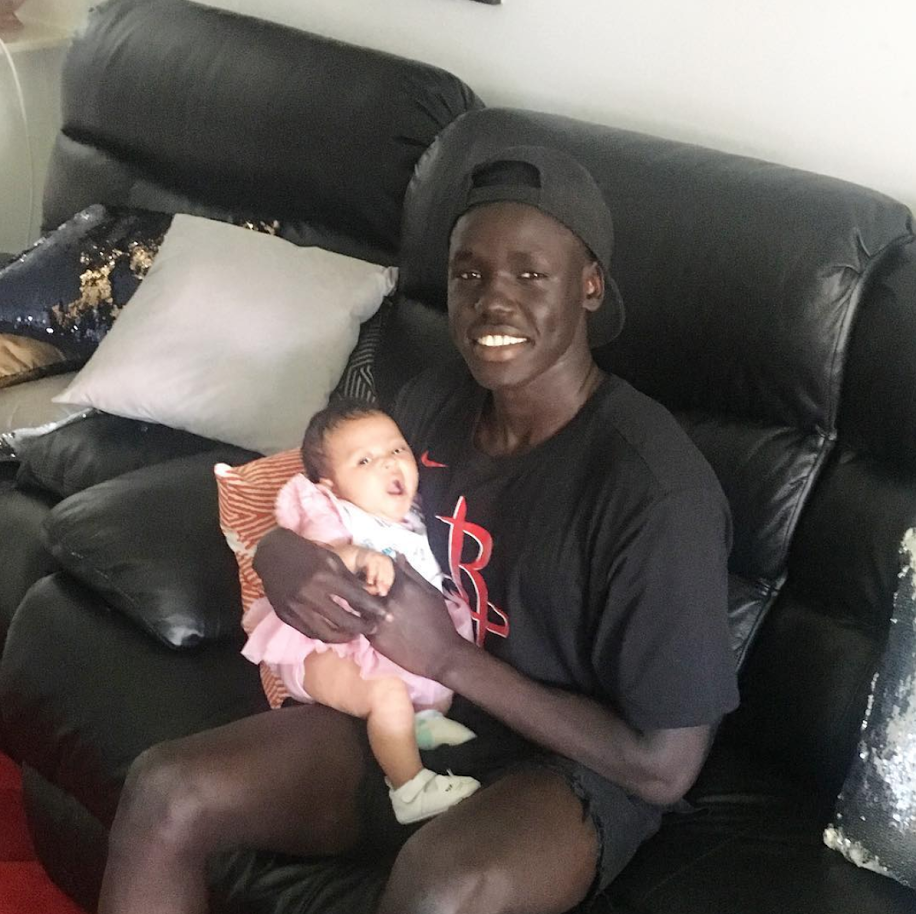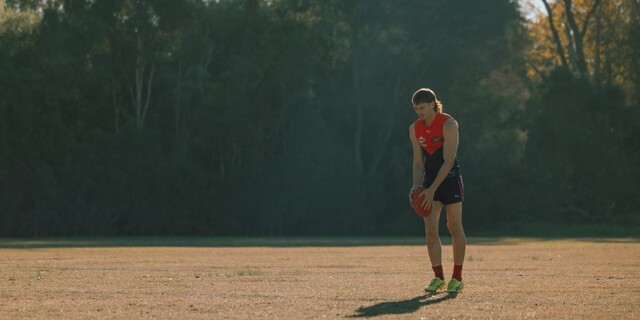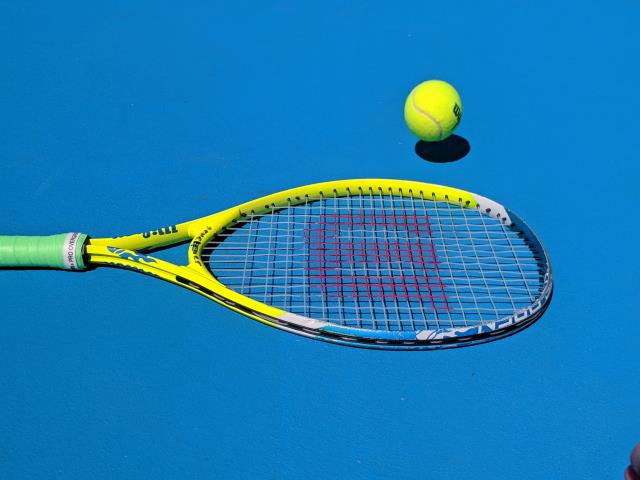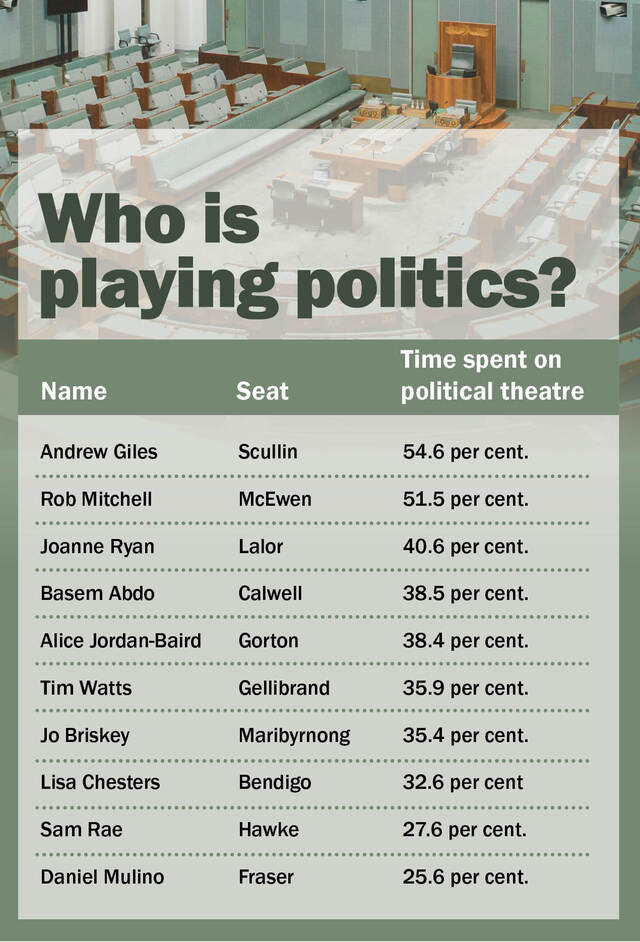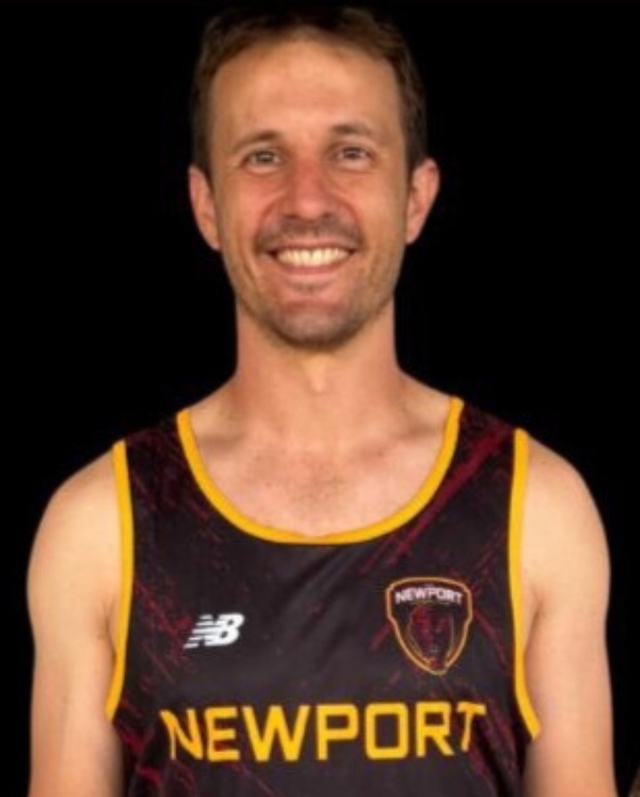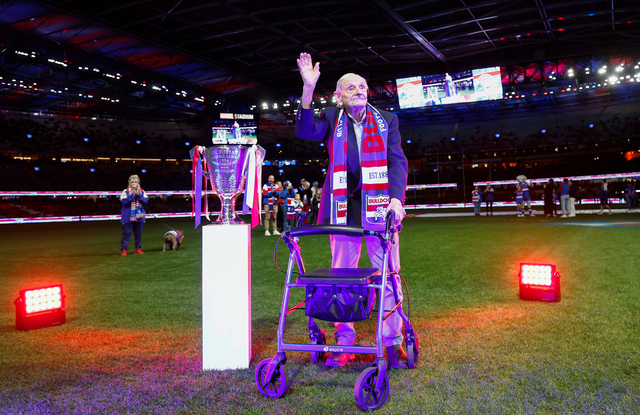African-Australian athletes have united to condemn what they consider the media and political demonisation of their communities.
Leading sports figures including AFL stars Majak Daw, Aliir Aliir and Changkuoth Jiath and VFL player Reuben William took to social media on Friday to spread a joint statement calling for more positive representations that don’t tar every African-Australian with the same brush.
Other signatories included Melbourne Victory’s Thomas Deng, Adelaide 36ers basketballer Majok Deng and professional kickboxer Emmanuel Chool.
Using the hashtags #AfricanGangs and #AustralianSports, the move has been made to remind Australians that the majority of their community has nothing to do with crime.
Footscray VFL player Reuben William has spearheaded the campaign, in response to what he considers an unfair and damaging sustained attack that is smearing all African-Australians.
William, an attacking half-back who played AFL with the Brisbane Lions before moving to Footscray’s VFL side this year, said young people are bearing the brunt of negative stereotyping being fuelled by talk of an African gangs ‘crisis’.
The 20-year-old, who arrived in Australia from South Sudan at the age of four, wants to shift the spotlight towards other areas in which young African-Australians have been excelling.
“It has been a hot topic and we want to send a positive message against the generalisations of the population of African-Australians and how unique each and everyone of us are in our own right,” he said.
“Every African-Australian kid has their own aspirations, whether in sport or law or other fields, and some of this gets lost and overlooked when something like this happens.”
There has been a lot of commentary around #AfricanGangs this is our view on its impact. Please have a read. @majakdaw @aliir_mayom @ChangkuothJiath @AkecMakur @Tonyolango @MajokDeng13 @majok55majok @thomasdeng24 @gach_nyuon pic.twitter.com/pmf38ZDgtH
— Reuben William (@reub__enW) February 1, 2018
The statement makes clear they don’t accept criminal behaviour, but urge the broader community to not allow it to define everyone of African descent.
“It is also to be understood that there are several people that have been deeply hurt and affected by the actions of a few young people. We are hurting with you, sympathise and stand with you. But it is important that you stand with us to help tackle the issue. This is something that we can overcome together.”
William said he had little difficulty convincing fellow African-Australian athletes to get on board and contribute to the joint-statement.
The idea was not to dispute that there may be some issues occurring, but simply to show it is not every single African-Australian and that it’s unfair to judge an entire community by the actions of a tiny minority.

“I think everyone has been suffering from this,” he said.
“I thought it was important for us to speak out for the community, broadening out people’s knowledge.”
While William admires those who have followed other career paths, his personal calling was always sport.
He found in footy a place where the colour of his skin ceased to be a barrier.
“I’ve always been big on the idea that sport is the ultimate connector, it doesn’t discriminate or care what your race or religion might be and so it’s a great beacon of unity.”


